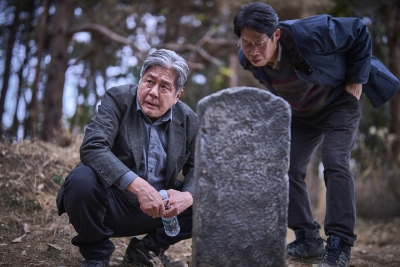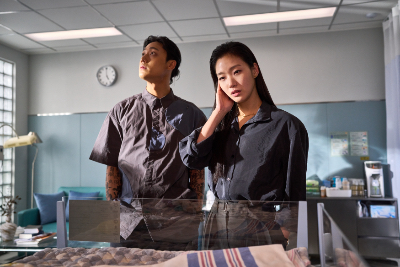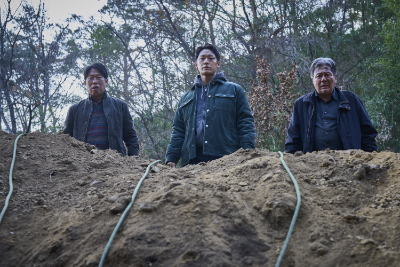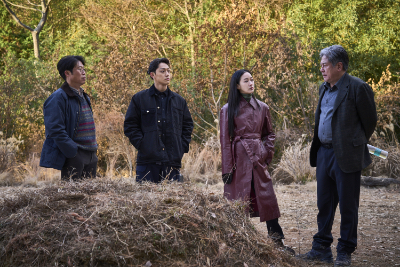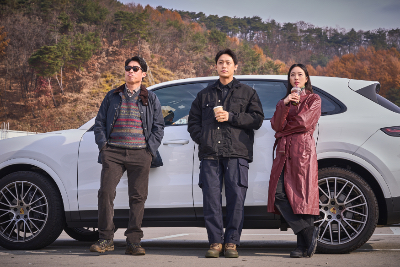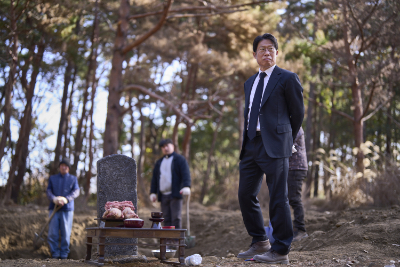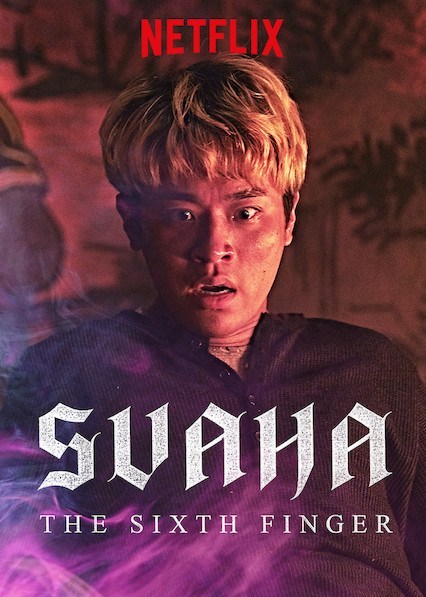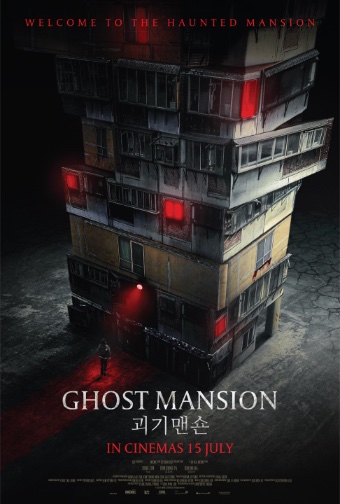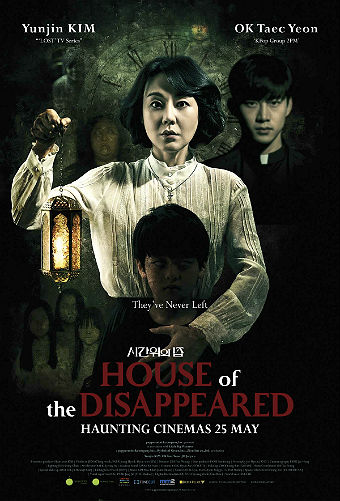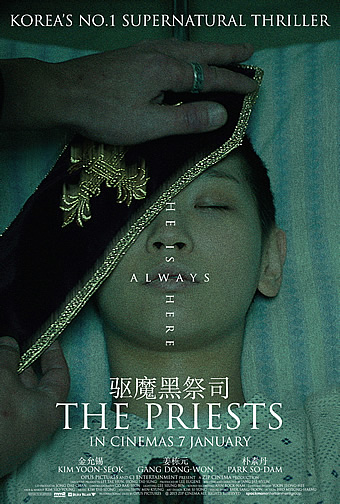EXHUMA (파묘) (2024)
Genre: Horror/Mystery
Director: Jang Jae-hyun
Cast: Choi Min-shik, Kim Go-eun, Yoo Hae-jin, Lee Do-hyun, Jeon Jin-ki
Runtime: 2 hr 13 mins
Rating: NC16 (Some Violence & Disturbing Scenes)
Released By: Golden Village Pictures
Official Website:
Opening Day: 14 March 2024
Synopsis: A wealthy family living in Los Angeles calls on a pair of young shaman, played by Kim Go-eun and Lee Do-hyun, to save their newborn child after they are visited by a series of paranormal events. The shaman duo senses that the dark shadow of an ancestor has latched on the family, a so-called ‘Grave’s Calling’. In order to exhume the grave and relieve the ancestor, they seek help from a leading geomancer, portrayed by Choi, and a mortician (portrayed by Yoo Hai-jin). To their dismay, the four find the grave at a shady location in a remote village in Korea. The exhumation is carried out, but unleashes a malevolent force buried beneath.
Movie Review:
On its surface, ‘Exhuma’ is about two shamans, Hwa-rim (Kim Go-eun) and Bong-gil (Lee Do-hyun), who in order to lift an ancestral curse surrounding the members of an enigmatic Korean household living in Los Angeles, employ a geomancer Sang-duk (Choi Min-sik) and a mortician Young-geun (Yoo Hai-jin) to relocate the grave of the family’s great-grandfather. Not surprisingly, things go awry – we won’t say what happens so as not to give away anything – and the said late relative escapes from the coffin to wreck havoc and vengeance upon his ungrateful descendants.
And indeed, over a tense first hour, writer-director Jang Jae-hyun establishes a vise-like grip over his audience as he lays out in three chapters the malevolence hanging over the remote mountain peak at which the grave sits, the odd tombstone that bears no name but only a number of coordinates, and the immediate and extended family whose reticence suggests a deeper, darker secret. Like all good horrors, most of it is implied – here, largely through the elements – although there is absolutely no doubt when the ancestor’s vengeful spirit is finally let loose.
It is absolutely fascinating to say the least. Jang pays careful attention in his depictions of the various rituals, not just Sang-duk’s exhumations but also Hwa-rim’s ‘daesal gut’ ceremony (in which a shaman performs an intoxicating dance with animal sacrifice to distract evil spirits); in particular, the details are intriguing to behold, like how Sang-duk tastes the dirt in a grave to determine the quality of the land or how Bong-gil tattoos scriptures on his body to ward off vile entities from possessing him. Especially for the uninitiated, it is spellbinding to witness how in today’s modern civilisations such traditionalism still prevails.
Part of the intrigue also comes from discovering our idiosyncratic quartet and their respective motivations. As seasoned as he is, Sang-duk proves to be an extremely cautious man, wary of the forces he can only seek to tame, but not control. On the other hand, though steeped in shamanism, Hwa-rim is driven by a strong capitalist instinct, and despite Sang-duk’s reservations, decides to press on with the exhumation. Bong-gil says little throughout the film, but we find out later on that his path to become a shaman is one of personal redemption. And last but not least, Young-geun is revealed to be a Christian by faith, and it is humbling to see him resort to prayer when confronted by evil.
You’ll do well to take note though that the narrative switches gears in the second half, and as much as we embraced Jang’s sleight of hand, we will say it is not hard to see why others may not. This much we will say – it isn’t about the family at the start anymore, or to a large extent, their great grand-father; rather, it delves into a specific period in Korean history when it was ruled by Japan, and an even more powerful evil force which had been preserved over the centuries. The link between the two inter-dependent but separate story arcs is clear as crystal, but it is quite a different supernatural entity that our quartet finds themselves up against.
We’d say too that, compared to the first hour, the second is a lot denser for many reasons. For one, not many would be familiar with the history of the Korean peninsula, and perhaps appreciate references like how ‘the fox broke the tiger’s waist’. For another, it goes much deeper into certain mythologies, in particular the five elements of ‘feng shui’ – namely, wood, fire, earth, metal and water – and how they work to reinforce or balance out one another. We have no doubt such references come across intuitively to Jang’s native home audience, but the rest of us not quite steeped in them will probably need to do some homework after to better understand the logic within.
As divisive as its third act may be, ‘Exhuma’ still remains a compelling horror thriller throughout, thanks to the conviction of its storytelling, direction and character work. Since his 2015 debut ‘The Priests’, Jang has demonstrated a gift for fashioning thrillers based on faith, religion and the supernatural, and ‘Exhuma’ sees Jang at his most ambitious and confident to date. Despite its slightly over two hour duration, there is never a dull moment within, in part because of a wry cast whose performances brim with understated charisma. Keep an open mind, and you will probably, like us, be pleasantly delighted at what secrets ‘Exhuma’ has hidden under its surface.
Movie Rating:




(Packed with intrigue, suspense and even sheer ominousness, this blend of the occult, supernatural and Korean history is a gripping watch from start to finish)
Review by Gabriel Chong
You might also like:
.jpg)
Movie Stills
